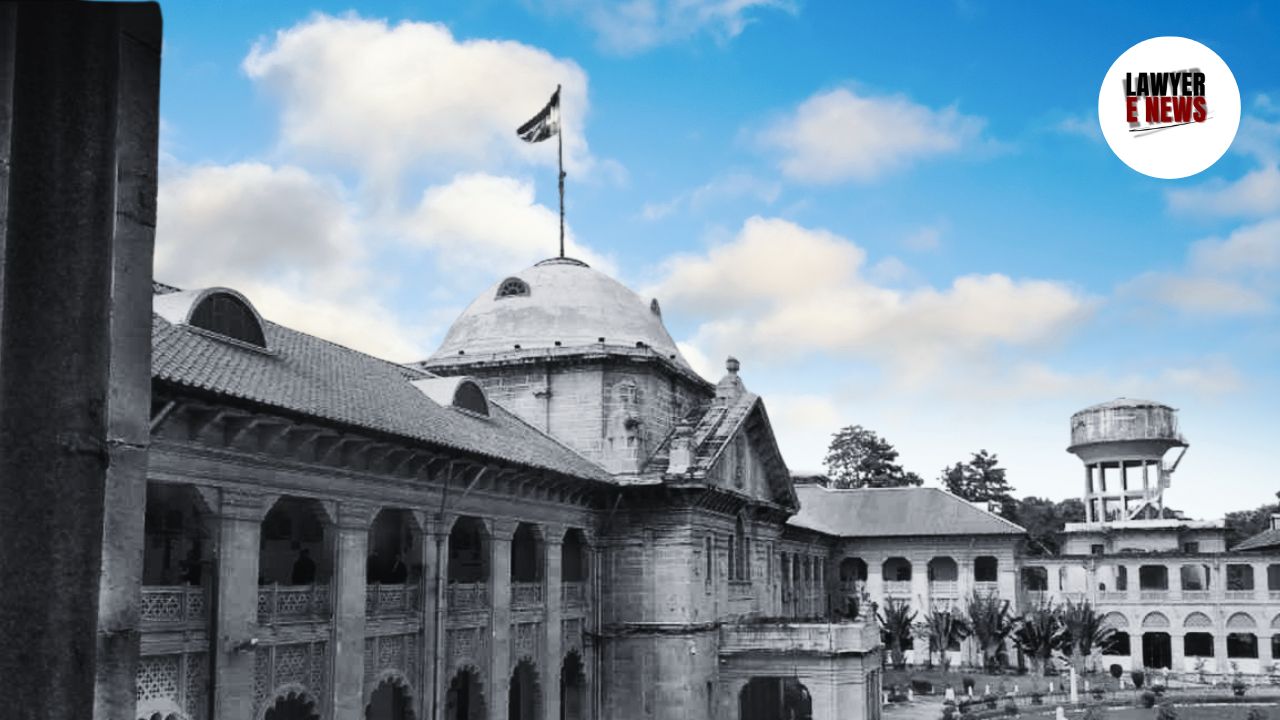-
by Admin
19 February 2026 3:14 PM



“Tweets Show Disapprobation, Not Subversion or Secession”, In a closely watched case concerning the intersection of digital speech, media freedom, and national security, the Allahabad High Court (Lucknow Bench) declined to quash the FIR lodged against Mohammed Zubair, co-founder of fact-checking portal ALT News, under various provisions of the Bharatiya Nyaya Sanhita (BNS), 2023 and the Information Technology Act. The FIR stemmed from a series of tweets that allegedly provoked unrest at the Dasna Devi Temple following the sharing of videos of controversial religious leader Yati Narsinghanand.
However, the Court offered crucial guidance on the scope of Section 152 BNS—akin to sedition—emphasizing that mere disapproval of government actions or republication of inflammatory content does not ipso facto amount to an attempt to subvert the state. The Court preserved the investigation, stating that a factual inquiry was necessary, while also cautioning against the misuse of such serious charges.
Mohammed Zubair was booked under Sections 196, 228, 299, 356(3), 351(2), and 152 of the BNS, along with Section 66 of the IT Act, based on an FIR lodged on October 7, 2024. The FIR alleged that tweets made by Zubair on October 3, 4, and 5—particularly a video of Yati Narsinghanand Giri’s inflammatory speeches—provoked an attack on the Dasna Devi Temple on October 4, 2024, where the complainant and the religious leader were reportedly present.
Zubair’s tweets criticized the administration’s alleged inaction against Yati Narsinghanand and reposted videos of his speeches. The petitioner argued that the tweets were aimed at calling out hate speech and seeking state accountability, not inciting violence or rebellion.
The central question before the Court was whether the FIR and the addition of Section 152 of the BNS—a stringent provision criminalizing any attempt to excite secession or armed rebellion—was legally sustainable.
The petitioner contended that Section 152 should be narrowly construed and should not criminalize “lawful disapprobation of state measures.” His counsel argued, “The tweets do not in any manner encourage separatist tendencies or incite rebellion. They merely criticize administrative inertia in prosecuting known hate speech offenders.”
Referring to the explanation appended to Section 152 BNS, the Court noted: “Comments expressing disapprobation of government measures with a view to obtain their alteration by lawful means do not constitute an offence under this section.”
The Court further stated: “If one goes by the tweets... it becomes evident that there was no attempt to excite secession or armed rebellion... The petitioner had every right to make comments expressing disapprobation of the measures taken by the administration.”
However, the Bench also observed that Zubair, as a prominent figure associated with a major fact-checking platform, was an influential voice on social media: “If his tweets were misunderstood by a certain section, they could definitely affect a fairly large number of people of the country.”
Despite acknowledging that Zubair’s intent appeared non-subversive, the Court declined to quash the FIR at the threshold, deferring to the investigative process: “It is for the investigating agencies to examine how far and to what extent the tweets impacted public order or sowed discord.”
The Division Bench of Justice Siddhartha Varma and Dr. Justice Yogendra Kumar Srivastava made a nuanced observation on the chilling effect of over-criminalization of digital speech. Citing the Supreme Court’s precedents, the Court reminded authorities:
“Even though the petitioner is a person of consequence in the realm of journalism, a very high threshold must be met before invoking Section 152.”
It noted that Section 152 of the BNS “has no direct equivalent in the Indian Penal Code and must be used sparingly, only against conduct that demonstrably and intentionally threatens national integrity.”
The Court refused to quash the FIR as a whole or in part, citing the principles laid down in Dineshbhai Chandubhai Patel v. State of Gujarat and Somjeet Mallick v. State of Jharkhand, where the Supreme Court cautioned against premature judicial intervention into ongoing investigations unless clear abuse of process was shown.
While the Allahabad High Court stopped short of quashing the FIR against Mohammed Zubair, its judgment strongly affirms that legitimate dissent and journalistic critique—even when uncomfortable or provocative—must be distinguished from subversion. The Court recognized that freedom of expression, especially in a democracy as large and diverse as India, cannot be sacrificed at the altar of public intolerance.
In the words of the Bench, “The tweets, as alleged, may express dissatisfaction—but the intention to incite rebellion or secession is not evident on the face of it.” This judgment sets a critical precedent in interpreting the newly enacted BNS in light of constitutional values and media freedoms.
Date of Decision: May 22, 2025
